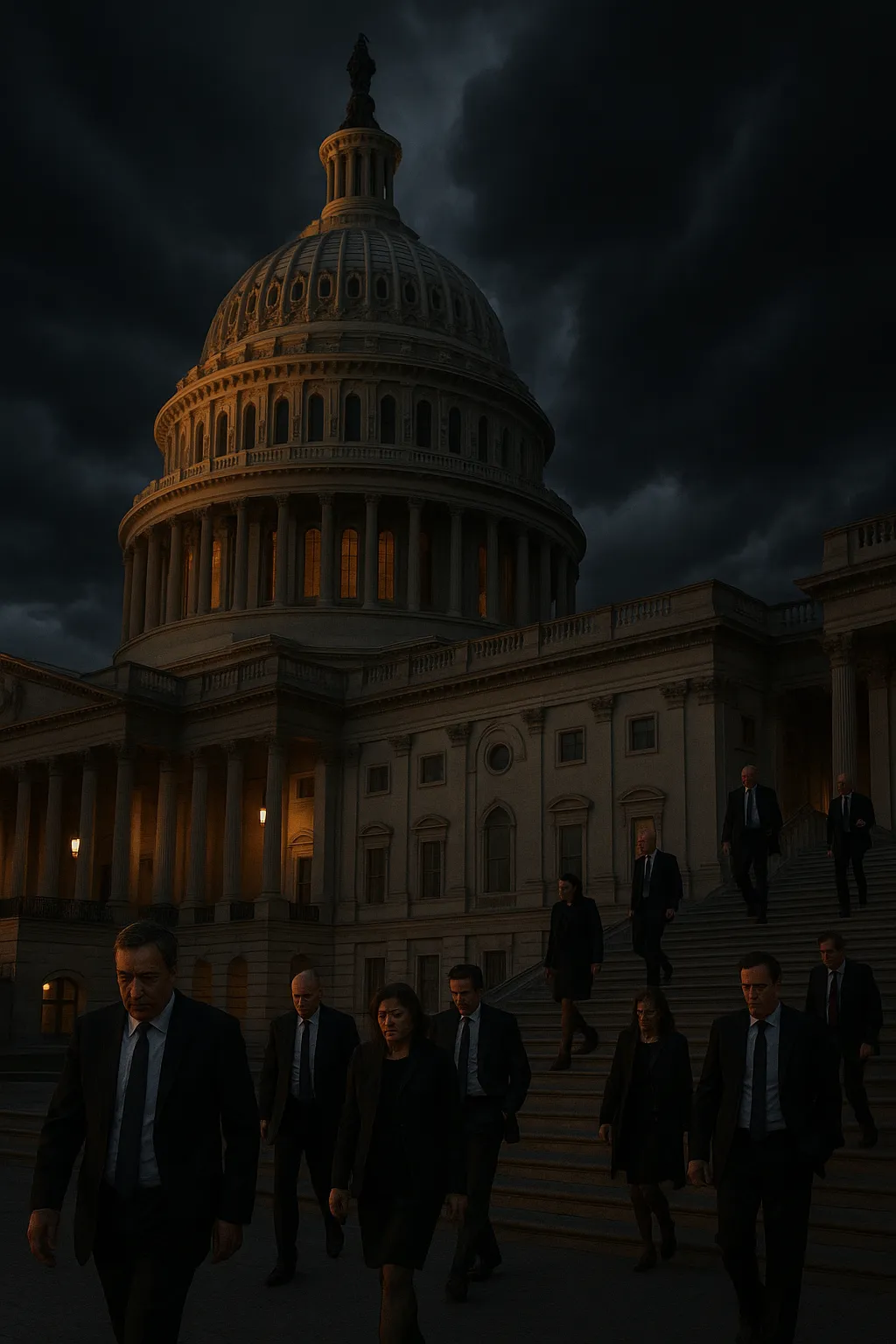Senate Fails to Pass Continuing Resolution in Shutdown Standoff

Senate Rejects Both Republican and Democratic Funding Measures on September 19, Raising Shutdown Risk
The Senate failed to advance competing continuing resolutions Friday, leaving Congress deadlocked with just 11 days before a potential government shutdown.
Both the House-passed Republican measure and a Democratic alternative fell short of the 60-vote threshold needed to overcome procedural hurdles, as expected. The Senate voted on the GOP plan to fund the government through November 21 and a Democratic proposal extending funding through October 31 while addressing healthcare priorities. Neither secured bipartisan support.
The standoff intensifies pressure on lawmakers as the September 30 funding deadline approaches. House Republicans narrowly passed their continuing resolution Friday morning in a 217-212 vote, with two Republicans opposing and one Democrat supporting the measure. The bill extends current spending levels through November 21 and includes $88 million for enhanced security for government officials following the assassination of conservative activist Charlie Kirk.
Democratic Opposition Centers on Healthcare
Senate Democrats have unified in opposition to the Republican plan, demanding inclusion of provisions to extend expiring Affordable Care Act subsidies and restore Medicaid funding cuts. Senate Minority Leader Chuck Schumer characterized the GOP measure as maintaining a “failed, chaotic, and costly status quo” that harms Americans’ healthcare access.
The Democratic alternative includes permanent extension of ACA subsidies set to expire at year’s end, reversal of Medicaid cuts from Trump’s earlier legislation, and restoration of funding for public broadcasting. Republicans have dismissed these provisions as partisan additions inappropriate for a short-term funding measure.
Congressional Recess Complicates Timeline
Both chambers are scheduled to depart Washington for a weeklong recess to observe Rosh Hashanah, returning September 29-just one day before the shutdown deadline. House Republican leaders are considering canceling planned September 29-30 sessions to maintain pressure on Senate Democrats to accept their proposal.
Senate Majority Leader John Thune indicated the Senate would likely remain in recess next week, potentially scheduling the next vote for Monday evening, September 29. This compressed timeline leaves minimal opportunity for negotiations before funding expires.
Stakes Rise as Deadline Approaches
The failure of Friday’s votes follows a familiar pattern of shutdown brinksmanship, with each party blaming the other for potential disruption. House Speaker Mike Johnson has characterized the Republican bill as a “clean” continuing resolution without partisan elements, while Democrats argue it perpetuates harmful spending cuts and fails to address critical healthcare needs.
A government shutdown would affect federal services, furlough workers, and close national parks, though essential services like border security and Social Security would continue. Both sides face pressure to reach agreement before the September 30 midnight deadline, with markets and federal employees watching developments closely.
The standoff reflects broader tensions over government spending priorities as Congress struggles to complete regular appropriations bills for fiscal year 2026, which begins October 1.
Categories
Autos and vehicles Beauty and fashion Business and finance Climate Entertainment Food and drink Games Health Hobbies and leisure Jobs and education Law and government Other Politics Science Shopping Sports Technology Travel and transportationRecent Posts
Tags
Archives
08/19/2025 (3) 08/20/2025 (40) 08/21/2025 (27) 08/22/2025 (22) 08/23/2025 (4) 08/24/2025 (21) 08/25/2025 (30) 08/26/2025 (24) 08/27/2025 (29) 08/28/2025 (16) 08/29/2025 (9) 08/30/2025 (13) 08/31/2025 (17) 09/01/2025 (167) 09/02/2025 (124) 09/03/2025 (149) 09/04/2025 (112) 09/05/2025 (72) 09/06/2025 (169) 09/07/2025 (162) 09/08/2025 (150) 09/09/2025 (176) 09/10/2025 (194) 09/11/2025 (194) 09/12/2025 (186) 09/13/2025 (207) 09/14/2025 (159) 09/15/2025 (175) 09/16/2025 (198) 09/17/2025 (196) 09/18/2025 (196) 09/19/2025 (207) 09/20/2025 (129) 09/21/2025 (4)